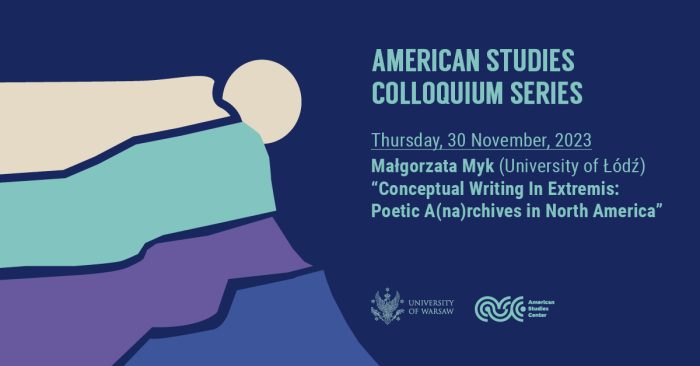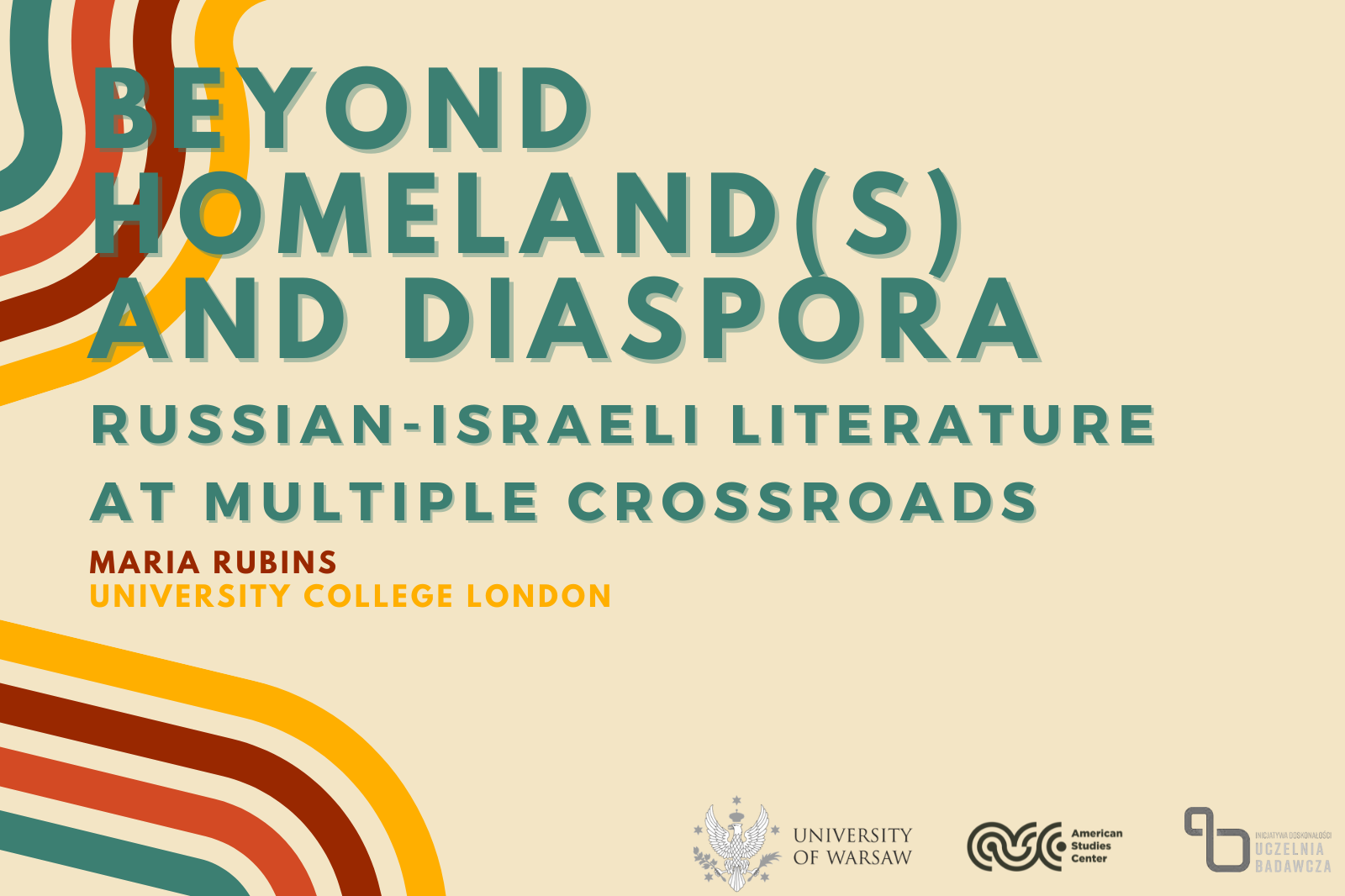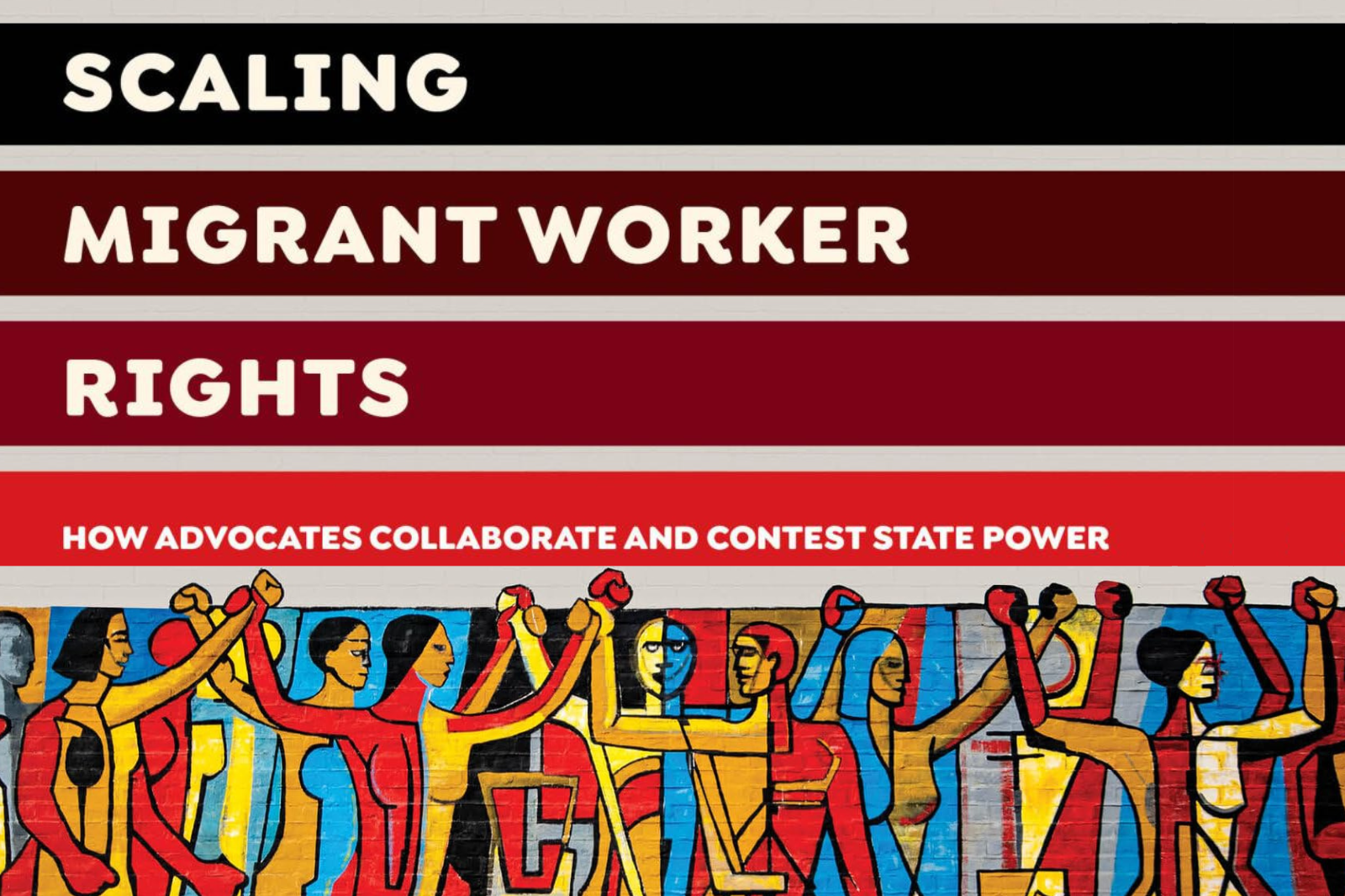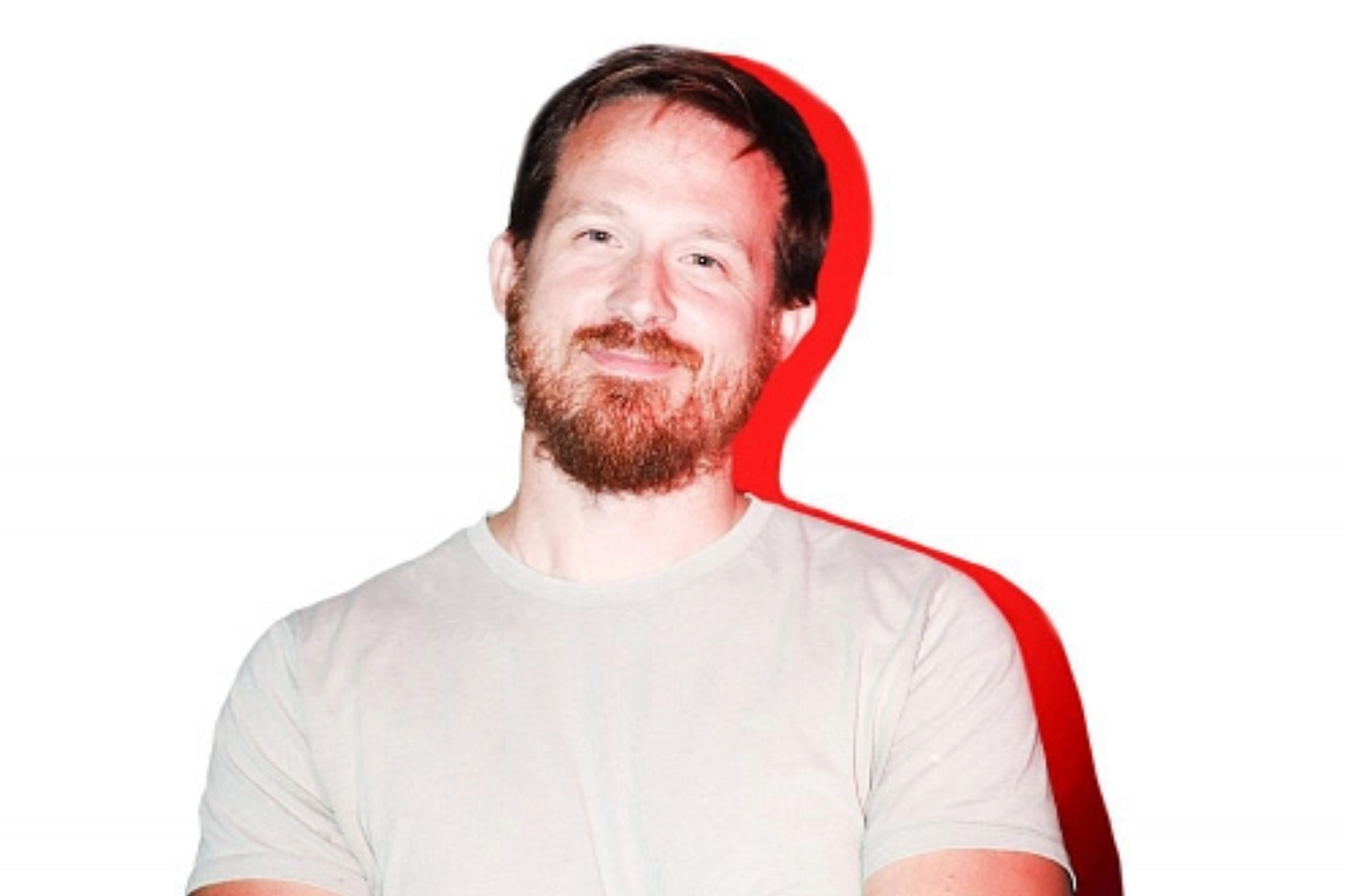We are pleased to invite you to the third lecture of the American Studies Colloquium Series in the 2023/2024 Fall semester
Małgorzata Myk
(University of Łódź)
Conceptual Writing in Extremis: Sonic A(na)rchives in 21st-century North American Poetry
Thursday, November 30, 2023
at 4:45 p.m.
You can get 3 OZN points for participating in this event.

Where?
Dobra 55, room 2.118
(the building features some mobility accommodations: ramp and lift)
What?
The lecture focuses on current developments in North American conceptual writing as a poetic mode invested in archival research. The common denominator of the archives that the poets selected for this study foreground are the forms of present-day extremity. The emergent variant of conceptual poetry I am interested in is characterized by an approach oppositional to what Ariella Azoulay has recently termed as the archiving regime. To investigate the new conceptualism’s performative stakes, I also refer to Erin Manning’s notion of the a(na)rchive. The two poets associated with this version of conceptualism are the Tamil American poet Divya Victor and the Canadian poet Syd Zolf. In their work, one can observe a significant departure from some of the earlier protocols of conceptualism that have been criticized as ahistorical or even racist, as well as unethical due to attempts of mastering archival material. Instead, they propose a deliberately minoritarian, or weak, approach to the archives that questions and undoes the mastery implied in archival work, aiming at retrieving archived records from institutions and returning them to the public. Grounding my sense of the new conceptual poetries’ strategies of appropriation of archival material in Michael Leong influential book Contested Records: The Turn to Documents in Contemporary North American Poetry (2020), I propose to expand Leong’s concept of “documental poetry” with a reading of Victor and Zolf that examines their a(na)rchiving and performative contributions to extending the archives’ duration. Addressing the radical forms that Victor and Zolf’s writing has been taking to articulate responses to the extremity of specific archives: the archive of anti-South Asian violence in the post-9/11 U.S. in the case of Victor and the archives documenting the Israeli/Palestinian conflict and Canada’s settler colonialism in the case of Zolf’s two book projects, I concentrate on these poets’ appropriative techniques of metabolizing extremity, paying special attention to the durational aspect of their poetics in both the temporal and sonic sense of the term. Finally, I take into account Victor and Zolf’s ways of foregrounding and eliciting affects as constitutive of the temporal and sonic durations their writings and performances draw out, which makes their variant of conceptualism markedly different from the strategies and procedures championed by earlier versions of conceptualism as predominantly disinvested from affective content.
Who?
Małgorzata Myk is an Assistant Professor in the Department of North American Literature and Culture, Lodz University. She is the author of Upping the Ante of the Real: Speculative Poetics of Leslie Scalapino (Peter Lang, 2019). Together with Kacper Bartczak she co-edited a volume of essays Theory That Matters: What Practice After Theory (2013) and the Polish Journal for American Studies Special Issue on technical innovation in North American Poetry (2017). Myk studied at the Department of English, University of Orono, Maine, where she also worked for the National Poetry Foundation (University of Orono, Maine) as an Editorial Assistant of the journal Paideuma: Studies in American and British Modernism. She was the recipient of the Kosciuszko Foundation Fellowship in the academic year 2017/18 (UCSD). She serves as the Co-Editor-in-Chief and Content Editor of Text Matters: A Journal of Literature, Theory and Culture, published by Lodz University Press. Her main areas of research are 20th– and 21st-century North American poetry and poetics with a focus on the avant-garde and experimental writing. She is currently working on a new book project devoted to the problem of duration in 21st-century North American conceptual poetry, particularly the work of poets who ground their writing in archival research. She is also a translator of poetry and has translated the work of such authors as Leslie Scalapino, Lisa Robertson, Kevin Davies, E. Tracy Grinnell and Divya Victor, among others, as well as the poetry of Maria Cyranowicz into English. Her translations of Cyranowicz’s poems are forthcoming from Litmus Press (New York) in the 2024 anthology Viscera: Eight Voices from Poland, edited by Mark Tardi.




